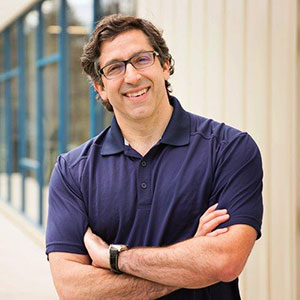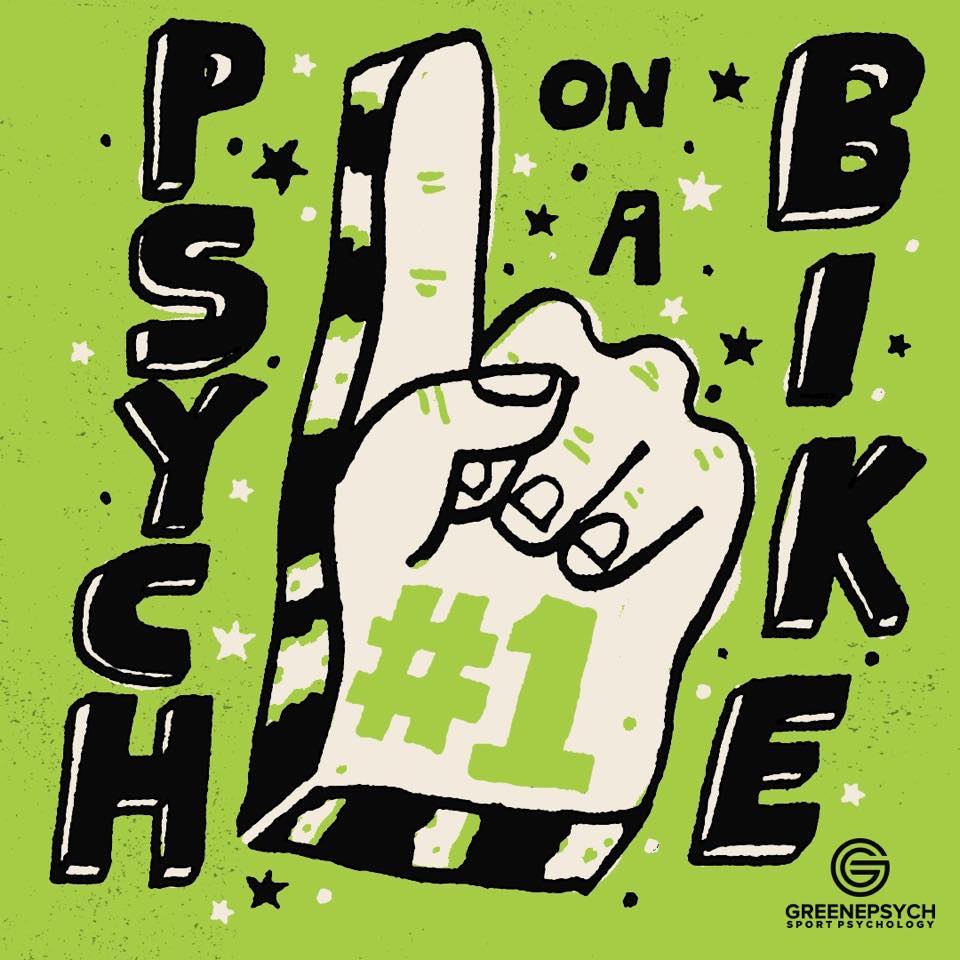An Interview with Mitchell Greene, Ph.D.
Since opening our shop in Haverford, we have met so many inspiring and interesting members of the community. One of our neighbors is Dr. Mitchell Greene of Greenepsych Clinical & Sport Psychology who recently began rolling as "Psych on a Bike". Naturally, we had to know more. We asked Dr. Greene about setting goals, failing goals, and his personal challenges. Read on for his responses.

|
 |
MBPS: We first met you when you brought your bike into the shop. You mentioned you were going to support the triathlon in New Jersey. Was that the first iteration of ‘Psych on a Bike?” If not, how did it start? Who is the Psych on a Bike team made up of? Is it a fixed roster?
Dr.MG: Our ”Psych on a Bike” team for the 2019 Philadelphia Marathon was made up of 5 people, that included two graduate students in psychology, one former collegiate runner who studied psychology, myself and my teenage daughter. I don't have a fixed roster, and interestingly, I have had a number of in-person and email requests from people asking if next year they could be on the 2020 Psych on a Bike marathon team. I hope to include more people next year, so we can spread out even more across the race course. People love the concept, the runners welcome the support, and for me, it's a wonderful way to combine my love of sport psychology and marathon running. I adopted the phrase "Psych on a Bike" from colleagues of mine who have been doing “Psych on a Bike” in different parts of the country. My first go with it was at the 2019 New Jersey race, Escape the Cape Triathlon, put on by Delmo Sports. When the Philly marathon folks heard about it, they were all in!

MBPS: Despite the fact that our area has been unseasonably warm, bitter cold weather is surely coming. Do you have any tips for staying motivated to train through the darkest depths of winter?
Dr.MG: During the darkest days of winter, I think it's important for athletes to change up their workouts to keep themselves motivated and excited. Too often, as a sport psychologist, I see athletes feeling pressure in the off-season to immediately dial right back in to their cycling or running training to improve upon their prior year's results. If they don't take a break physically or mentally, in some ways their season never really ends. That puts them at high risk for burnout.
I try to practice what I preach when it comes to my own training regimen. For example, I like to ski during the winter, so I adjust my workouts to focus on getting ready for ski season, and when my kids are home during college break, I enjoy going to spin classes with them (something I don't have much interest in doing on my own). I also reach out during this time of year to a few friends who love endurance sports as much as I do and see if there's a way we can go race or do an event together. Over the years, I've done several events with friends around the country, and that makes training over the winter much more fun knowing I have something special I'm looking forward to that will be a combination of social time with friends and racing. I am a big believer that getting races paid for and on your calendar is very motivating, albeit sometimes a bit scary, but sometimes it’s just what you need to get going.
Off-season is also a great time to try out new gear. I’m always interested in what’s out there in terms of new sneakers, the latest bike shoes, or other run/bike technology.
MBPS: Do you personally use any mental tricks in your own training regimen? Care to share?
Dr.MG: I don’t have any tricks but what I have found personally helpful is to celebrate what I call the small “w’s (w stands for wins), and not just the big W’s. In other words, I used to be more all or nothing about my training. Either I was nailing it, six days a week, or I wasn’t doing much. Now, I’m more willing to see that even if I’m not being totally consistent, the short workouts, the walking the stairs instead of taking the elevator, the 20 pushups in the morning and the 20 at night, the 30-minute spin are small “w’s” that in time will have me ready when I can roll into more consistency and getting back to the big “W’s.” It’s a more self-accepting, kinder-gentler approach that I suggest others consider as well.
MBPS: What would you tell everyone about “Personal Bests” both in competitive sport and in life in general?
Dr.MG: I think the goal of trying to be your personal best is what we all strive for, on and off the race course. It can be challenging for many reasons, including because of social media, for people to focus on being THEIR best rather than THE best. I also think people tend to get stuck because they think they need to be confident in order to succeed. In order to be the best you can be, it often takes courage more than confidence. I have a trademarked phrase I share often with clients. It’s “Courage Over Confidence.” The idea behind it is that you can’t be courageous, by definition, except in the presence of fear. And, so, when the nerves and doubts creep in, and confidence drops to a new low, I encourage people to not despair but to focus more on the opportunity in front of them to be courageous. In other words, to see the doubts as another opportunity for them to discover something about themselves they didn’t know they can do. Interestingly, confidence comes after you do something that’s hard. Courage often comes first.
MBPS: What do you think of fitness based New Year’s Resolutions? What advice do you have for folks who fail their resolutions?
Dr.MG: While some take issue with it, I like people setting fitness-based New Year’s resolutions. But, what comes as no surprise to anyone, setting the resolution is relatively easy compared to backing it up with consistent patterns and habits.
I think the motto, “Persistence Over Perfection” is helpful for all of us who try to keep resolutions, and for one reason or another, fall off the wagon. Perfectionist-type people look at resolutions as a win/lose proposition, which isn’t very helpful. I suggest relaxing your standards a bit, so that if you miss a day a week or two or even more, you celebrate getting back to it (and showing your persistence), instead of beating yourself up for not being a perfect resolution holder.
MBPS: Will you be doing any races this year? Does Psych on a Bike have any plans at this time for 2020?
Dr.MG: Right now, I’m looking at a few Spartan races and some road races for 2020. Definitely some will be with friends. “Psych on a Bike” will make a few appearances this year, for sure. Look for me at Delmo Sports events, the Philly Marathon, and perhaps some other races who will want to bring on “Psych on a Bike” for their athletes.
MBPS: What is the best way for folks who are interested in Psych on a Bike and your practice to follow or get in contact?
Dr.MG: My website is www.greenepsych.com. That’s a great way to find out more about my private practice, Greenepsych Clinical & Sport Psychology, where we see athletes who have performance and/or clinical needs. We definitely specialize in endurance sports, but work with athletes from all sports. I have a Greenepsych Facebook Page Twitter and Instagram pages.
[Congratulations Tim Leithead, winner of our Basic Bike Fit Giveaway! Check your email to schedule your appointment!]





